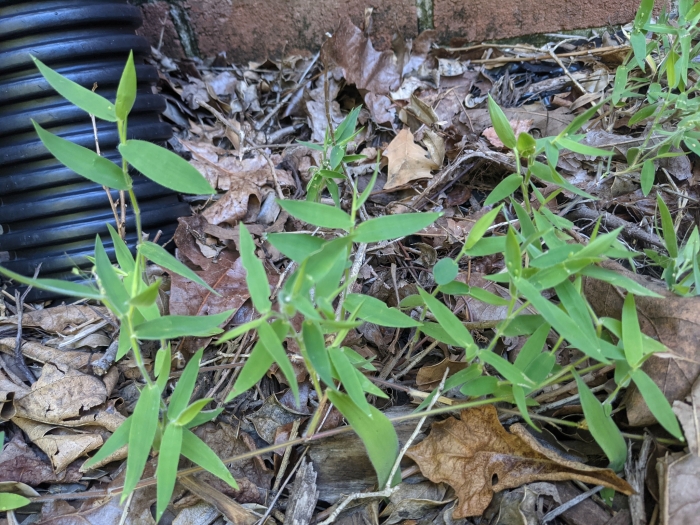Dichotomous Panic Grass
(Dichanthelium dichotomum)
Dichotomous Panic Grass (Dichanthelium dichotomum)
/
/

© stephen
CC BY 4.0
Image By:
© stephen
Recorded By:
Copyright:
CC BY 4.0
Copyright Notice:
Photo by: © stephen | License Type: CC BY 4.0 | License URL: http://creativecommons.org/licenses/by/4.0/ | Uploader: schizoform | Publisher: iNaturalist |























Estimated Native Range
Summary
Dichanthelium dichotomum, commonly known as Dichotomous Panic Grass, is a perennial grass native to a wide range of habitats across the eastern United States, including open woodlands, fields, and savannas. It typically grows to a modest height of 1 to 3 feet (0.3 to 0.9 meters) and is known for its adaptability to a variety of soil conditions. This grass features a clumping form with fine-textured foliage and produces small, inconspicuous greenish flowers in the late spring to early summer. The flowers are not particularly showy, but they do produce seeds that are valuable for wildlife.
Dichotomous Panic Grass is appreciated for its ability to stabilize soil and support wildlife, making it a useful plant for restoration projects and naturalized areas. It is also used in ornamental gardens for its texture and as a ground cover in prairie-style plantings. This grass prefers full sun to part shade and tolerates a range of soil types, from well-drained sandy soils to heavier clay. It is relatively low-maintenance and can be an excellent choice for erosion control. While generally disease-free, it can occasionally suffer from rust or fungal leaf spots.CC BY-SA 4.0
Dichotomous Panic Grass is appreciated for its ability to stabilize soil and support wildlife, making it a useful plant for restoration projects and naturalized areas. It is also used in ornamental gardens for its texture and as a ground cover in prairie-style plantings. This grass prefers full sun to part shade and tolerates a range of soil types, from well-drained sandy soils to heavier clay. It is relatively low-maintenance and can be an excellent choice for erosion control. While generally disease-free, it can occasionally suffer from rust or fungal leaf spots.CC BY-SA 4.0
Plant Description
- Plant Type: Grass
- Height: 1.5-2.5 feet
- Width: 1-1.5 feet
- Growth Rate: Moderate
- Flower Color: N/A
- Flowering Season: Spring, Summer, Fall
- Leaf Retention: Deciduous
Growth Requirements
- Sun: Full Sun, Part Shade
- Water: Medium, High
- Drainage: Medium, Slow
Common Uses
Erosion Control, Low Maintenance
Natural Habitat
Native to open woodlands, fields, and savannas across the eastern United States
Other Names
Common Names: Cypress Panicgrass, Cypress Witchgrass, Forked Witchgrass
Scientific Names: , Dichanthelium dichotomum, Chasea dichotoma, Dichanthelium dichotomum subsp. nitidum, Dichanthelium dichotomum var. barbulatum, Dichanthelium dichotomum var. nitidum, Dichanthelium nitidum, Panicum angustifolium, Panicum angustifolium, Panicum barbatum
GBIF Accepted Name: